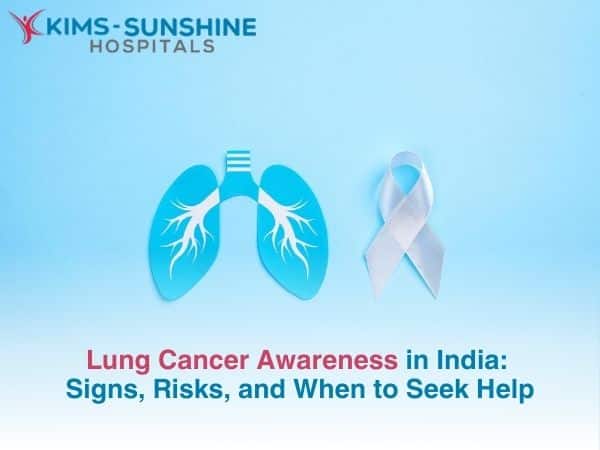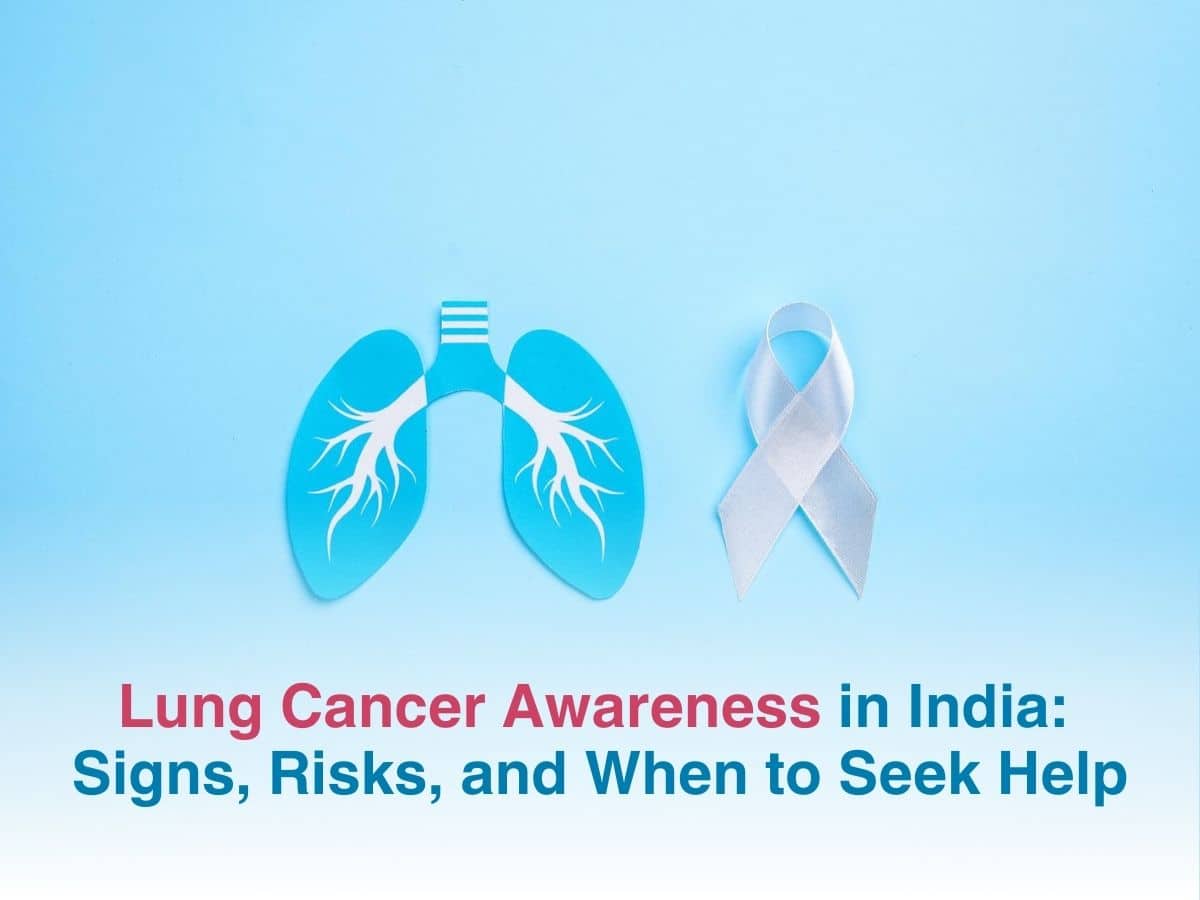
Lung Cancer Awareness in India: Signs, Risks, and When to Seek Help

Lung cancer is a pretty self-explanatory term- cancerous cells invade the lung tissue to form tumours which may be benign or malignant.The lungs are very important organs which are responsible for us all breathing in fresh air. This also means that we are particularly sensitive to toxins that can be inhaled. The very first thing that comes to mind in this scenario is exposure to cigarette smoke either due to smoking or inhaling second hand smoke. For some reason, more men get affected by lung cancer than women but this may be due to men being able to smoke more easily. Exposure to tobacco of any kind over a long period of time is also a major risk factor.
Why Celebrate Lung Cancer Awareness Month
India is at a particularly precarious position the past few decades- with almost 10% of the population suffering from lung cancer in different forms. Cancer can be attributed to a few risk factors like smoking, usage of tobacco, exposure to polluted air, second hand smoke etc. this means almost 70000 cases are diagnosed annually. As with any other medical condition, early detection is the best way to get started with proper treatment. This awareness of symptoms and when to get screened needs to improve in India. Let us give you a list of symptoms or signs to watch out for-
- A nagging cough that stays forever
- Feeling short of breath or wheezy
- You may cough blood out too
- Nausea and weight loss
- Voice changes – hoarseness
- Infections of the lungs- like bronchitis or pneumonia
- The neck and face may look swollen in affected persons
You need to know that there are two different types of lung cancer- non-small cell lung carcinoma and small cell lung carcinoma respectively, with the latter being particularly hard to treat as symptoms don’t show up until much later.
How Is Lung Cancer Diagnosed?
We have already given you a list of symptoms and here we will tell you how you get a definitive diagnosis. Suspicious symptoms should prompt you to get screened immediately. A detailed family medical history is also taken as genes are the main risk factors. Screening is done using a few options like a detailed low dose-CT, taking your blood sample and checking it for the presence or absence of specific lung cancer biomarkers. The theme for this year is ‘Stronger Together- United for Lung Cancer Awareness’ ties in beautifully with this exact agenda. You should also get checked even if you have stopped smoking in the last 15 years.
History Of Lung Cancer Awareness Month
Lung cancer awareness day was first celebrated in 1995 and since then it has become an important annual thematic event. First brought to focus by the American Lung Association and Lung Cancer Foundation of America, this movement has made several strides globally with respect to teaching the public about when to get screened and getting the right kind of treatment for the particular diagnosis.
Conclusion
Lung cancer is not going to be the end of you if you manage to catch it in the early stages. There are very good chances you will get better with surgical resection, immunotherapy, chemotherapy or any of the other options available at present. What have we finally learned? That we need to keep a watch out for any unusual signs and get medical attention ASAP. You can always talk to people who have been affected before – like cancer support groups and to doctors, friends and family. Remember- you are never alone!
Frequently Asked Questions
When was lung cancer awareness month first celebrated?
Who is at risk of developing lung cancer?
What are the symptoms I need to watch for?
How do I get screened?
Can women develop lung cancer too?

Dr. V. Laxman Babu
MBBS, MD (Pulmonary Medicine)
Sr. Consultant Pulmonology, Interventions & Sleep Medicine






